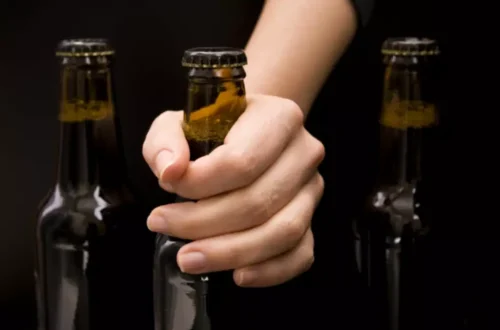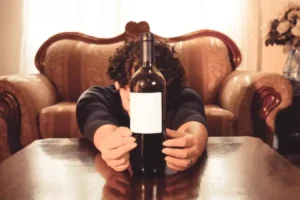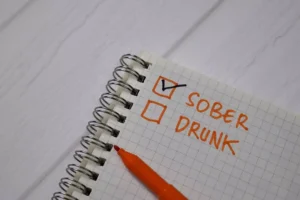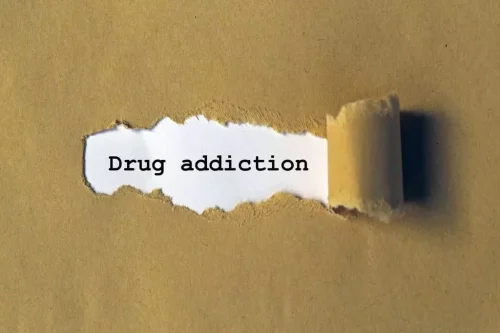
Similar to ashwagandha, holy basil may help alleviate anxiety from alcohol withdrawal. This mineral is thought to support insulin action by improving cellular uptake of glucose. It can also be found in foods like broccoli, turkey, potatoes, green beans, and grape juice. If you need help quitting smoking, reach out to a healthcare provider or call QUIT-NOW. Opt for sources of unsaturated fats, such as avocados, nuts, and olive oil. Avoid trans fats and excess saturated fats, which are predominantly found in animal products like bacon, hot dogs, and sausages, as well as certain plant oils like coconut and palm oil.
- If individuals believe they have a problem with alcohol or if they drink more than the recommended amounts, they should speak with their doctor for support and advice.
- Even if you are not suffering from these conditions, taking glycine may help protect your liver if you have a history of heavy drinking.
- Additionally, there are some herbal remedies to help with alcohol cravings.
- Alcohol cravings are caused by psychological and physical factors that form triggers that tempt you to drink.
Internal Triggers for Alcohol Consumption

Coupled with practical strategies for diversion and the support of a compassionate community, the journey through recovery can become a pathway to profound personal growth and healing. Although the available evidence is mixed or lacking in humans, the following natural supplements, herbs, and vitamins might help curb alcohol cravings (5, 6, 7). Along with medication herbs to reduce alcohol cravings and other treatment support, a range of alternative therapies may be effective in lessening alcohol cravings and other withdrawal symptoms. Nutrition is a crucial factor in improving insulin sensitivity and metabolic health. A well-balanced diet helps manage blood sugar spikes and reduces inflammation, both of which contribute to insulin resistance.
Oar Health Member Stories: ADHD and AUD
Withdrawal is a syndrome of intense physical discomfort and emotional distress that occurs when the use of alcohol and other substances is abruptly stopped following prolonged heavy use. Individuals who chronically abuse alcohol or other substances are at increased risk for depressed mood, anxiety, memory problems, dementia and insomnia. Additionally, chronic alcohol consumption changes the balance of chemicals in your brain. The brain adapts to the sedative effects of alcohol by producing more of the excitatory neurotransmitter glutamate and less of the inhibitory neurotransmitter GABA. This means when you suddenly stop drinking, the brain is left in a hyper-excitable state, leading to withdrawal symptoms and cravings.
Importance of Support Systems in Dealing with Alcohol Cravings: You’re Not Alone
If asked about herbal treatments for a drinking problem, it is advisable to recommend speaking with a professional rather than self-treatment with over-the-counter supplements. Of course, these are only 12 helpful options—there are many vitamins and supplements for alcoholics you can take to aid your system in recovery. We recommend speaking with your doctor about how heavy drinking has impacted your body, and which supplements will be the most safe and useful for you as an individual. Other new habits, such as regular exercise, mindfulness practice, and a healthier diet, can all contribute to boosting your health in recovery.


Dates are easily accessible and are quite effective in curing alcohol addiction. If you soak a few dates in water and eat them daily, you can detox naturally and significantly reduce your addiction symptoms. However, excessive training without proper recovery can disrupt your body’s balance, including the levels of amino acids like glutamine. While mindfulness and patience are long-term strategies, immediate, practical steps can also be taken to manage cravings effectively. Healthy diversions and positive substitutions play a crucial role in this regard, offering healthy alternatives to the cycle of craving and consumption.
- Breaking this habit loop can be useful in overcoming alcohol cravings.
- This post is offered as a concise review of promising herbal and other natural product treatments of alcohol craving and withdrawal, narcotic withdrawal, and benzodiazepine withdrawal.
- L-glutamine is another great supplement for anyone trying to reduce their alcohol consumption.
- Find activities that are mentally and emotionally nourishing and bring you joy, and identify ways to connect socially with friends, says Witkiewitz.
However, once a person begins to consume alcoholic beverages regularly, the brain chemistry starts to change. The first difference a person may notice is that they need more alcohol to achieve the effects they enjoy. Increasing the amount and frequency of drinking starts changing brain function. It becomes more and more difficult for the brain to function as it did before it was altered by excessive consumption. The longer you try to go without having a drink, the more your brain craves it so it can feel “normal.” There are ways to beat cycles of craving and stop for good.
Mindfulness and Patience: Tools for the Journey
- But, incorporating them into your diet can help you manage your urges more effectively, as part of a comprehensive recovery strategy.
- Your body uses more resources when healing from trauma or fighting off an infection.
- These activities should be enjoyable and engaging, counterbalancing the urge to consume alcohol.
- Intermittent fasting is an approach to eating that cycles between periods of eating and fasting (not eating).
- James Lake, M.D., a clinical assistant professor at the University of Arizona College of Medicine, works to transform mental health care through the evidence-based uses of alternative therapies.
- Help them understand your triggers and ask for the needed support during challenging times.
